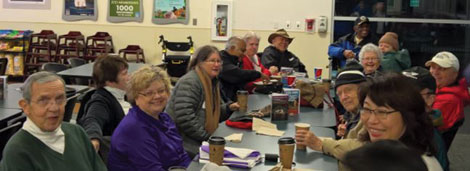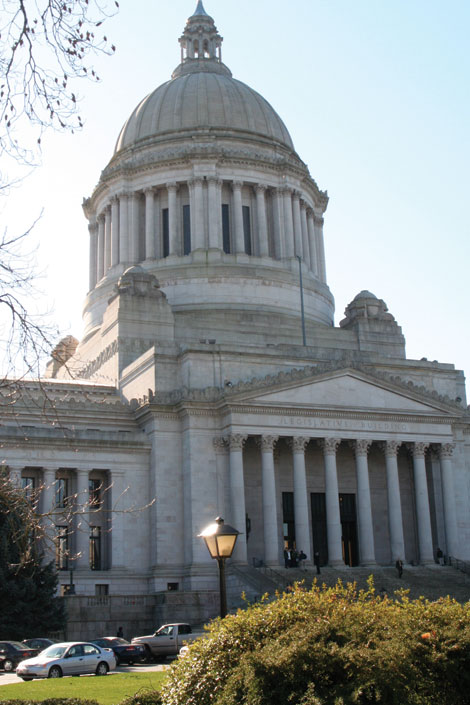Yoga ‘all about relaxing’ and for all ages
When she recalls the first time she offered to guide meditation sessions inside the W.W. Seymour Botanical Conservatory, Megan Zaback seems once again overwhelmed with the lush, nearly magical atmosphere of the structure which has graced Wright Park in Tacoma since 1908.
“I had just started teaching yoga†in Tacoma after an extended absence from her home town, she said. “I love Wright Park, and one day I just walked into the conservatory. ‘Oh, this would be spectacular,’ I thought, so I immediately approached Tyra (Shenaurlt, the on-site manager), and she said yes.â€
And so several years ago, Zaback began leading an evolving series of meditation and movement sessions under various names and on different schedules – sometimes evenings, sometimes days. Now, the hour-long Relax and Renew events take place twice monthly on Saturdays beginning at 9 a.m., just before the conservatory, which is operated by Metro Parks Tacoma and is home to hundreds of exotic plants within the glass dome and wings, opens to the public at 10 o’clock.
Participants stretch out on floor mats, sit on cushions or perch on chairs. “You don’t have to bring anything,†Zaback said. Even so, it’s best to wear something loose, comfortable and perhaps in layers to adjust to the temperature inside, she advised. In fall and winter, the conservatory can be cool, so Zaback keeps socks on.
Typically, about a dozen people turn out for each session, but there’s room for about 20. Participants are a mix of ages, from children to the elderly.
“Anybody can do this,†Zaback said. “No experience is necessary.â€
Sessions begin with gentle stretching and simple exercises to enhance awareness of the body and breath. “There’s always music playing,†and sometimes the group chants, Zaback said. She often brings a large brass bowl, known as a singing bowl, which vibrates musically when struck or stroked.
“It’s all about relaxing,†she said. “So many people are overly stressed out, with clenched jaws, headaches, stomach problems, aches and pains. To allow the body to really heal, we have to drop out of that stress zone. It’s imperative.â€
At a certain point during the sessions, Zaback turns off the music. “Silence is its own sound,†she said.
Zaback speaks earnestly of her practices of meditation and various healing arts, which include massage, yoga and reiki. She began studying with her first yoga teacher at 19. Now 35, she travels to Hawaii every few months and wears her thick, light brown hair in a loose mane which hangs about halfway down her back.
She’s always had an awareness of the spiritual connection that she said can be achieved through meditation. It takes practice to focus the mind, but it shouldn’t be daunting or scary, she noted.
“It’s beautiful to be part of someone’s exploration and awakening,†she said, adding that the verdant ambience of the antique Seymour Conservatory enhances the experience.
“It’s a very powerful, healing place. It’s aesthetically pleasing. It just warms the heart to be with those plants,†Zaback said.



